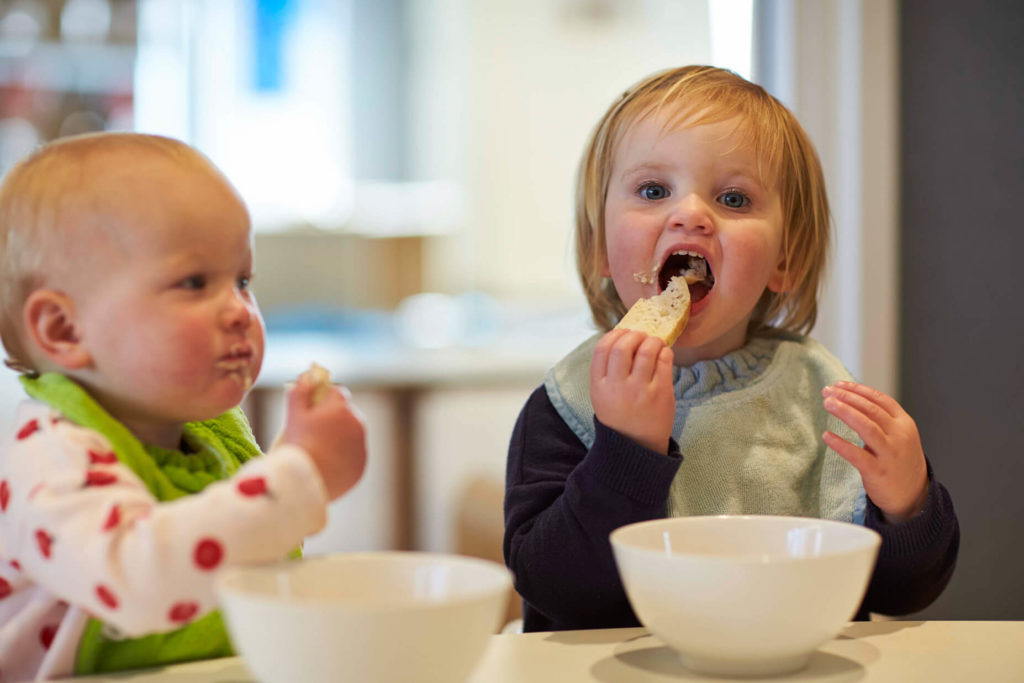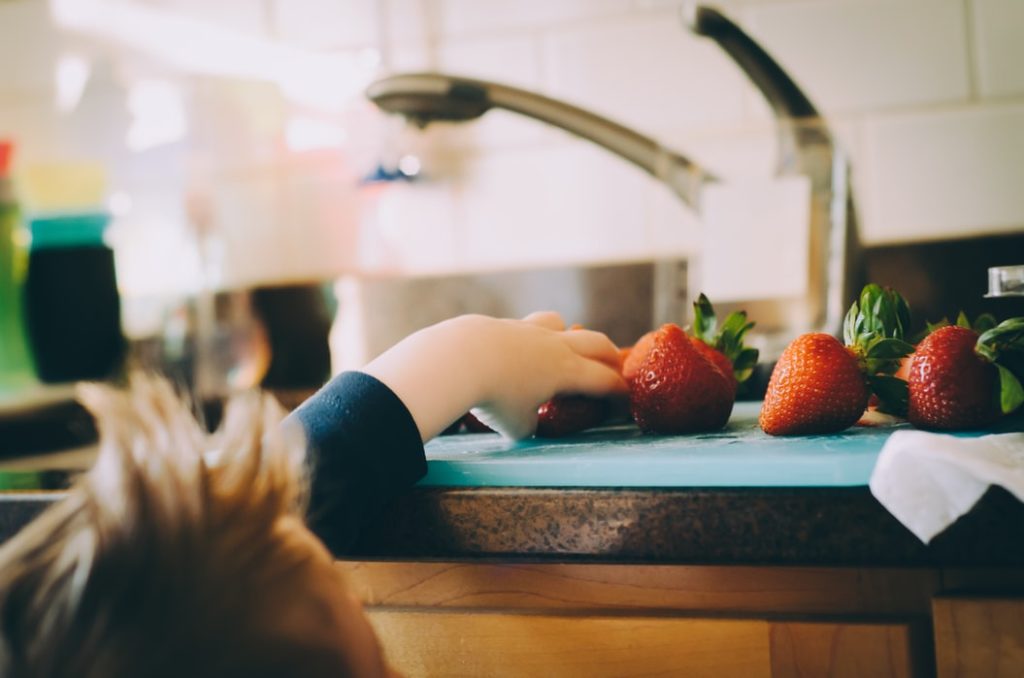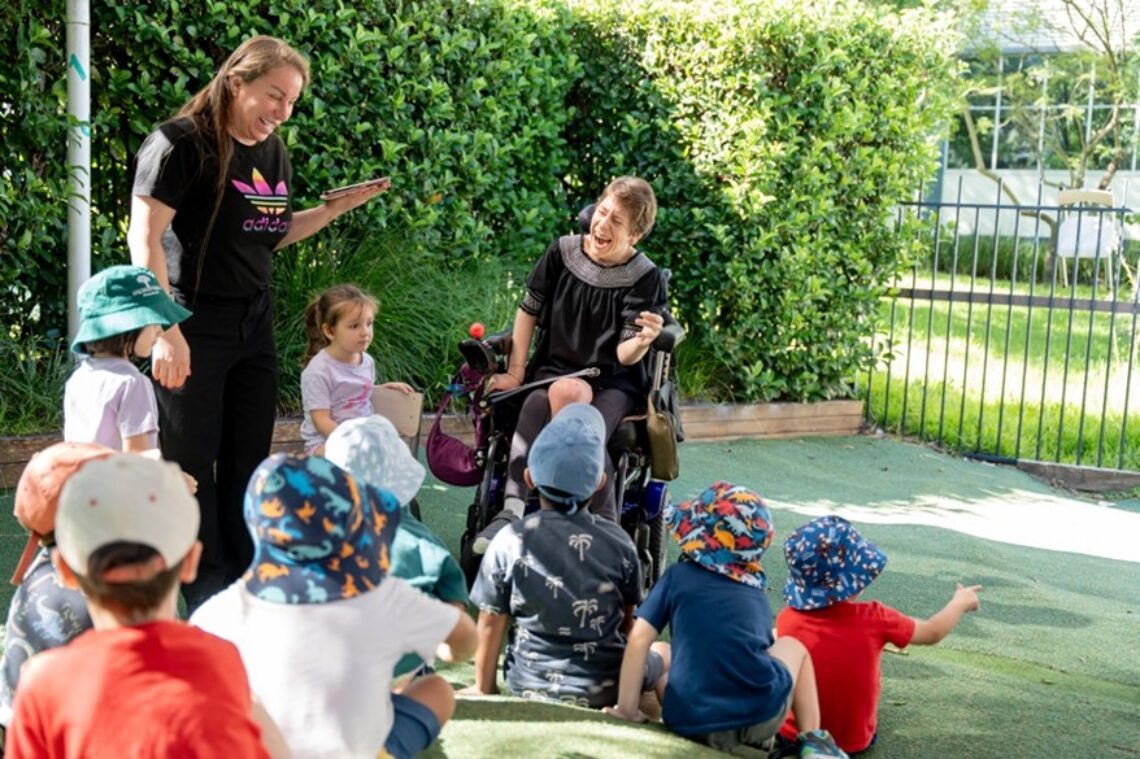The Link Between Mood & Food


Mood and Food
Our in-house Dietitians Anna and Alex explain how you can support your child’s mood through good nutrition.
As Dietitians, some of the most common concerns we hear from parents regarding their children’s mood include irritability, aggression, lack of concentration, mood swings, low energy, hyperactivity, and just plain poor behaviour. There are many factors to consider when assessing a child’s mood. So, food and diet is one area where simple shifts can have a big impact.
How does food affect your mood?
We have known for a long time that diet has a significant impact on children’s physical health. Diet can impact growth, bone health, brain development, heart health and chronic disease risk later in life. However, recent research has started looking at the relationship between diet and mental health and behaviour. It is evident that what children (and adults) eat does indeed impact their mood, emotions and mental development.
While all of us can benefit from consistently eating healthier foods, children and teenagers are in a rapid phase of physical and neurological growth and development. Paying particular attention to what and how we feed them is essential to support their mood, attention, learning and behaviour. Research suggests that eating a healthy and nutritious diet can improve mental health, enhance cognitive skills like memory and concentration and improve academic performance.
You might think your child has a pretty good diet overall (with the occasional treat here and there of course). However, the statistics in Australia indicate that only around 65% of children are meeting the recommended daily serves of fruit and vegetables. The majority of children are not eating enough lean meats and alternatives.
Here are our recommendations on how you can improve your child’s behaviour and mood with food.
1. Cut back on overly processed foods
It’s ok to allow your children to enjoy discretionary foods like chocolate, chips, lollies, soft drinks, cakes, pies, pastries (etc.) every now and then. However, these foods should not comprise a large portion of their diet. Foods that are high in added sugar can result in a spike in blood sugar levels. This can negatively impact mood and energy throughout the day.
Children who eat sugary cereals, white bread, lollies, juices, and other sweet or refined foods throughout the day are more likely to experience mood swings and low energy. This is a result of regular blood sugar spikes and crashes. This blood sugar rollercoaster can also negatively impact their behaviour, and overall ability to function.
Researchers around the world have investigated the relationship between what children are eating and their emotions and behaviours. Many studies identify that a dietary pattern higher in processed and junk foods is linked to more emotional and behavioural problems in children and adolescents.
Tips to cut back on processed foods and added sugars include:
-
Feed your kids fresh fruit instead of fruit juices, or other processed fruit-based products
-
Choose low sugar breakfast cereals
-
Make homemade baked goods using fruits as a natural sweetener
-
Limit packaged snacks such as muesli bars and fruit straps
2. Include wholegrain carbohydrates throughout the day
Glucose is the brain’s preferred source of fuel. Once ingested, carbohydrates break down into glucose. A diet lacking in regular carbohydrates is bound to contribute to a bad mood. Although the brain may seem like a small organ in the body (accounting for just ~2% of your child’s body weight) it uses an incredible 20% of total energy consumed by the body.

Best foods for energy and mood? Offering your child wholegrains regularly throughout the day is the best way to ensure their brain receives a constant supply of energy. This constant supply of nutrients will help to prevent dips in children’s energy levels and, therefore, maintain mood, energy and concentration.
Tips to get wholegrains throughout the day include:
-
Choose cereals based on wholegrains such as oats or weet-bix
-
Offer brown rice crackers or multigrain crackers
-
Offer popcorn as a healthy snack option
-
Include wholegrains such as brown rice or quinoa at main meals
-
Choose wholegrain breads
3. Include probiotic containing foods such as yoghurt
Living inside your child’s gut are millions of microorganisms. Among these microorganisms are good and bad bacteria. The population of bacteria and balance of good vs bad bacteria can be detrimental to your child’s health, including their mood and energy levels. Incorporating probiotic rich foods such as yoghurt into your child’s diet regularly can help to create a thriving, healthy gut microbiome.
Serotonin, commonly known as “the happy hormone”, is produced inside the gut. It travels to and from the brain via the gut-brain axis, impacting feelings of happiness. A healthy gut will allow for the healthy production of hormones like serotonin, which are essential for good mental health in your child.
Tips:
-
Offer plain yoghurt and naturally sweeten it with fresh or frozen fruit
-
Add yoghurt to smoothies to boost the protein and probiotics
-
Make homemade yoghurt and fruit ice blocks
4. Offer oily-fish 2 to 3 times a week
You may be familiar with the Mediterranean diet, an eating pattern commonly touted as being beneficial for mental health and brain functioning. A common feature of this diet is oily fish. Consuming fish 2-3 times a week can help to reduce inflammation in the body, which is believed to be associated with poor mental health.
One of the strongest areas of research into the relationship between foods and behaviour focuses on getting children to eat more oily fish which are rich in omega-3 fatty acids.
Best sources omega-3 fatty acids include:
-
Oily fish such as mackerel, salmon
-
Omega-3 enriched eggs
-
Walnuts, linseeds and flaxseeds

5. Always encourage your children to eat breakfast
A nutrient rich breakfast for children is essential to provide them with energy and essential nutrients. Iron, calcium and vitamins B and C, for example, are necessary for growth, development and good health.
It’s been proven that eating breakfast can improve a child’s performance and reduce hyperactivity. So breakfast helps to set children up for the day. It can also improve behaviour and mood, as children have better concentration and aren’t tired or hungry.
Kid-friendly breakfast ideas:
-
A boiled egg with wholegrain toast
-
Baked beans on a wholegrain English muffin
-
Fruit smoothie
-
Porridge cooked with apple and served with a dollop of plain yoghurt
-
Weet-bix with milk and banana
-
Banana pancakes
Mood and Food overview
There is always more research to be done in the area of mood and food and mental health. It is clear, though, that what children eat is hugely important for their mental and brain health. When you feed children a healthy, nutrient-dense diet it will help to improve their mood, stabilise energy levels and encourage appropriate behaviour. As a parent, it is important that you start by leading by example and eat a healthy diet to look after your own mental health!
Further reading: Nutrition to Support a Healthy Heart
You’ll find more reading on children’s Health and Nutrition here.
Only About Children can help your child to grow, make friends and explore the world.
Only About Children can help your child to grow, make friends and explore the world.
Related Reads


Bec Celebrates 10 Years Working In Her Dream Job At OAC Concord
Rebecca Donatiello (Bec) celebrates 10 years working and learning at Only About Children Concord.

Choosing The Right Preschool/Kindergarten For Your Child
Choosing the right Preschool/Kindergarten for you child can be a daunting task. When exploring the ideal preschool choices for your child, there is no need to navigate blindly. Simply by asking the right questions, you can find the perfect match.
